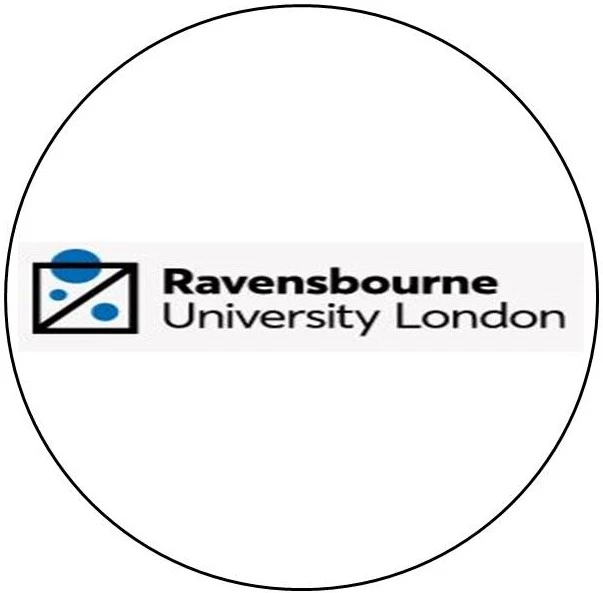• Study in Germany
MBBS in Germany
3708 Reads
3 min Read
- Germany offers MBBS programs renowned for their high academic standards and rigorous training.
- MBBS programs in Germany often have lower tuition fees than in many other countries, making education more accessible.
- These programs equip students with the necessary skills and knowledge to excel in medical practice and integrate into the German healthcare system.
Studying an MBBS in Germany offers a pathway to a world-class education in medicine, attracting thousands of aspiring doctors from around the globe every year. Recognised for its innovative teaching methodologies, modern facilities, and robust curriculum, Germany stands as a premier destination for medical education. The country not only opens doors to cutting-edge research opportunities but also ensures a high level of practical training and experience. Moreover, the cost of MBBS in Germany, makes it an attractive option for international students.
MBBS in Germany Specializations
Why Study MBBS in Germany?
| Global Recognition | German universities provide top-tier medical education with modern facilities and advanced teaching methods. Medical degrees from Germany are internationally recognised and respected, opening doors to opportunities worldwide. |
| Affordable Education | If you're concerned about the cost of MBBS in Germany, rest assured it's highly affordable. Public universities typically don't charge tuition fees, while private universities offer subsidised rates. Additionally, there are numerous scholarship opportunities available for students who may need financial assistance to pursue their MBBS in Germany. |
| Highly Popular | The MBBS program in Germany is highly sought after by international students. Approximately 20% of students enrolled in Germany's top universities come from various countries around the world. |
| Advanced Healthcare System | Students benefit from learning in a country with an excellent healthcare system and gaining insights into effective medical practices. |
| Numerous job opportunities | Having an MBBS degree opens up numerous lucrative job opportunities, as it's recognized in most European Union countries and beyond. Moreover, Germany's medical industry alone employs nearly 5 million individuals, further highlighting the potential for career advancement with an MBBS degree from Germany. |
Also read: Best Countries to Study MBBS Abroad at Low Cost
MBBS in Germany Requirements
| Academic Qualifications |
|
| German Language Proficiency | All MBBS courses in Germany are taught in German, necessitating proficiency in the language. Applicants are generally required to present a German language certificate, with most universities requiring a minimum of TestDaf. Among the most recognized exams for this purpose are:
|
| English Language Proficiency | For courses conducted in English, students are required to submit scores from either the IELTS or TOEFL exams. These scores are compulsory components of the MBBS requirements in Germany. |
| Germany Medical Entrance Exam |
|
Documents Required for MBBS in Germany
- Educational Transcripts
- Letter of Motivation (same as Statement of Purpose)
- Proof of German Language Proficiency
- Letters of Recommendation
- Germany Blocked account
- Proof of health insurance,
- Copy of Passport
- Current photos
How to Apply for MBBS in Germany
- Explore and choose German universities based on your preferences.
- Review eligibility criteria on the university websites.
- Complete the online application form.
- Submit the application form and required documents to the university.
- Upon admission confirmation, visit the German Embassy to apply for a visa.
- Prepare for your journey abroad!
Cost of studying MBBS in Germany
| Tuition Fees | Germany's public universities typically don't charge tuition fees for MBBS programs, but students should budget for semester fees. Private universities and specialised programs can cost €1,000 to €10,000. |
| Living Expenses | Apart from tuition or semester fees, you'll have to account for living expenses like accommodation, food, transportation, health insurance, and personal costs. Typically, students should allocate approximately €8,000 to €10,000 per semester for living expenses in Germany, though this may vary based on the city and lifestyle. |
Jobs after MBBS in Germany
| Job Roles | Annual Salary Range (EUR) |
| Anesthesiologist | €90,000 - €140,000 |
| Dermatologist | €70,000 - €120,000 |
| General Practitioner | €60,000 - €90,000 |
Pathologist | €70,000 - €110,000 |
| Pediatrician | €70,000 - €110,000 |
| Psychiatrist | €60,000 - €100,000 |
| Radiologist | €80,000 - €130,000 |
| Resident Physician | €50,000 - €70,000 |
| Specialist Physician | €80,000 - €120,000 |
| Surgeon | €90,000 - €150,000 |
Conclusion
FAQ
Get great articles direct to your inbox
The latest news, articles, and resources, sent straight to your inbox every month.
Popular Universities to Study Abroad
World class education waiting for you.
-at-University-of-Hertfordshire.png)
Navitas Group - Hertfordshire International College (HIC) at University of Hertfordshire
England, UK • 231 Programmes
Tuition Fee : GBP 4000-14000 / year


Kaplan Business School - Perth Campus
Western Australia, Australia • 31 Programmes
Tuition Fee : AUD 22000-24000 / year

Leeds Beckett University - City Campus
England, UK • 226 Programmes
Tuition Fee : GBP 14000-16500 / year



Griffith University - Nathan Campus
Queensland, Australia • 398 Programmes
Tuition Fee : AUD 31500-50000 / year

Popular English Language Proficiency Exams
Blogs and Articles
Curated content to keep you updated on the latest education trends, news and more.
Updated on • Jul 17,2025 05:33 PM IST • USA
PTE Accepted Universities in Australia
Updated on • Jul 17,2025 05:09 PM IST • PTE
Part-Time Jobs for International Students in Australia
Updated on • Jul 17,2025 03:44 PM IST • Australia
Updated on • Jul 12,2025 04:02 PM IST • USA
Updated on • Jul 11,2025 11:32 AM IST • Education
CPT vs OPT: Meaning, Difference, and How to Apply
Updated on • Jul 11,2025 10:40 AM IST • USA
Masters in Computer Science in UK: Top Colleges, Eligibility, Scholarships
Updated on • Jul 10,2025 11:29 AM IST • study in the UK
Highest Paying Jobs in the World
Updated on • Jul 08,2025 01:40 PM IST • Study Abroad
MBA in Australia for Indian Students: Best Universities, Requirements, Scholarship, Courses, Jobs
Updated on • Jul 08,2025 01:35 PM IST • Australia
Canada vs Australia: Which Country is Better for Indian Students in 2025?
Updated on • Jul 07,2025 12:46 PM IST • Education
France vs Germany: Which Is Better for International Students?
Updated on • Jun 30,2025 05:15 PM IST • Education
Top 10 Agricultural Universities in USA
Updated on • Jun 27,2025 05:25 PM IST • USA
Most In-Demand Future Careers in 2025
Updated on • Jun 26,2025 04:41 PM IST • Education
How Much Do Nurses Make in the U.S.?
Updated on • Jun 23,2025 03:59 PM IST • USA
Updated on • Jun 21,2025 02:00 PM IST • USA
MBA in UK: Universities, Eligibility, Types, and Career Opportunities
Updated on • Jun 19,2025 04:09 PM IST • UK • study in the UK
Scholarships in France for Indian Students
Updated on • May 29,2025 05:22 PM IST • France
Intakes in Dubai for Indian Students
Updated on • May 27,2025 03:34 PM IST • Study in Dubai
France Student Visa 2025 – Requirements, Fees, Checklist & Application Process
Updated on • May 23,2025 03:36 PM IST • France
MBA in France for Indian Students in 2025
Updated on • May 22,2025 05:35 PM IST • France
Related Blogs and Articles
A little effort to provide an authentic and reliable content for keen readers!!
Reasons to study Engineering Masters in Germany
Updated on • 17-05-2025 • Study in Germany
Updated on • 14-01-2025 • Study in Germany
Part-Time Jobs in Germany for International Students
Updated on • 06-12-2024 • Study in Germany
Health Insurance in Germany for International Students
Updated on • 06-12-2024 • Study in Germany
Scholarships in Germany for International Students
Updated on • 06-12-2024 • Study in Germany
Updated on • 27-11-2024 • Study in Germany
Updated on • 27-11-2024 • Study in Germany
Complete Undergraduate Admissions Guide to Study in Germany
Updated on • 27-11-2024 • Study in Germany
Updated on • 03-02-2024 • Study in Germany
Updated on • 18-09-2023 • Study in Germany
Updated on • 15-09-2023 • Study in Germany
How Much Does it Cost to Study in Germany?
Updated on • 14-09-2023 • Study in Germany
Why Study Management in Germany
Updated on • 10-08-2023 • Study in Germany
Life of an International student in Germany
Updated on • 21-07-2023 • Study in Germany












